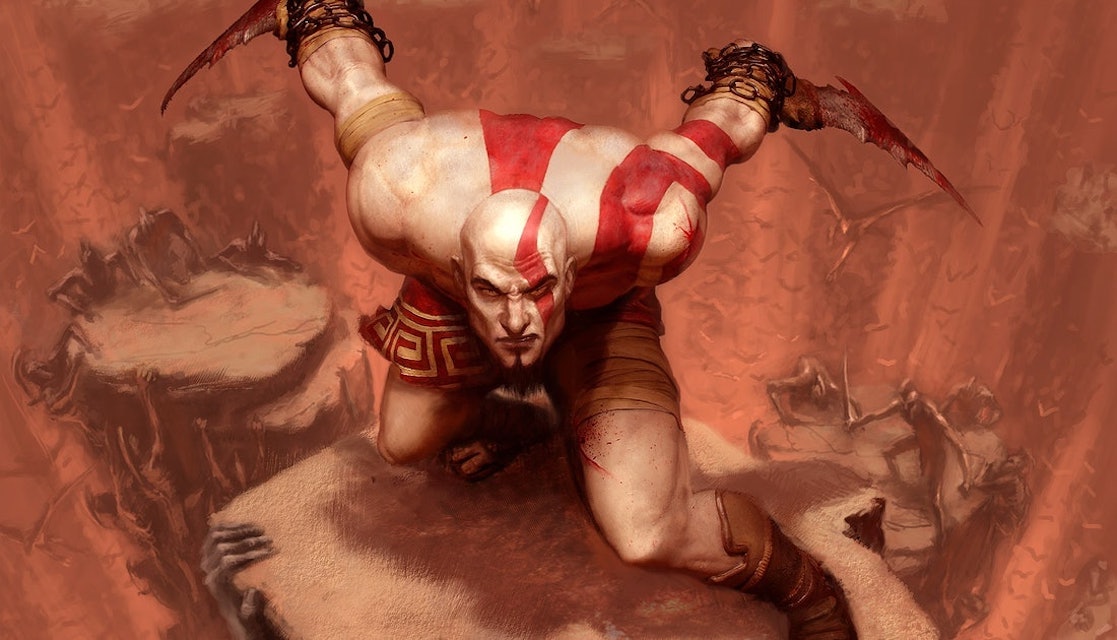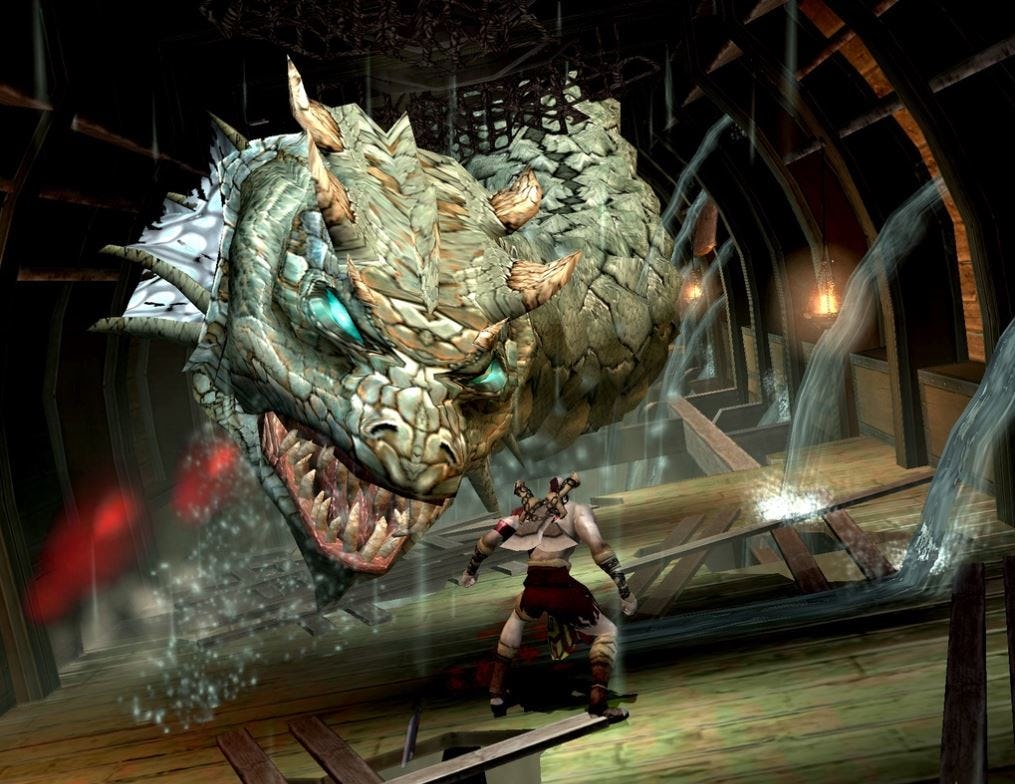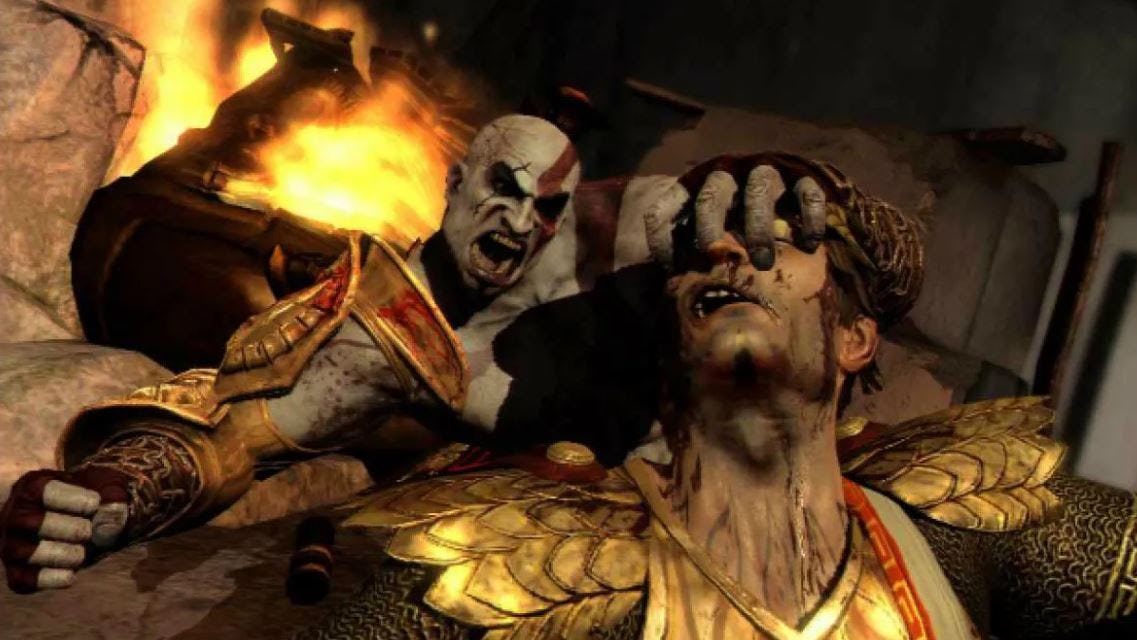
The past is always getting heavier. It’s full of memories, regrets, and context that grow every day. This past is known and defined. It’s why we’re tempted to “put the past behind” and focus on the future, which is unknown and therefore everything we want it to be. But the past matters, especially in games with a long franchise arc. And there is one franchise worth exploring right now more than any other.
God of War saw its latest iteration drop this week to much fanfare and near-perfect scores. The second entry in a series reboot that began in 2018, God of War: Ragnarok looks to continue the white-knuckle action and fatherly frustrations of god-slaying hero Kratos and his half-god son, Atreus. But today’s fans shouldn’t look away from the past. Because playing through Kratos's history is an adventure worth taking.
There are three games in the first God of War trilogy. The original God of War dropped in 2005 for the PlayStation 2. God of War 2 came out on PS2 two years later, in 2007, and the third installment God of War 3 was released in 2010 for the PS3. The only way to play these games today is to either own the old tech and software or download them as part of a Premium PlayStation Plus membership.
Odds are you haven’t played any of these three titles in a long time, if at all. So what are you missing?
While there are a few rough edges, the biggest draw for revisiting the original trilogy, especially if you’re a fan of the Norse games, is how significant the story beats will feel. Players inherently feel a deeper connection to modern-day dad Kratos because he’s drawn as a more grounded, human character. Watching him wield the Blades of Chaos for the first time in the older games feels like playing through a piece of mythology rather than just some action-game exposition.

Story and narrative are fun and all, but the real draw of the original trilogy is the action.
Gone is today’s slower, deliberate drama. You’re transplanted back to the era of extremely edgelord gaming with non-stop, over-the-top combat. The Kratos of 2005 is a young Spartan general hellbent on revenge, whipping the Blades of Chaos around and dismembering foes with gleeful speed. The 2005 God of War is worth revisiting just for the Hydra battle alone.
God of War 2 is in many ways a proper sequel in that it takes what worked in the first and turns it up to 11. The fundamental combat stays the same but enough quality-of-life improvements that it feels like an upgrade. There’s also a much larger story that makes for a more epic experience. It is widely regarded as one of the best PS2 games of all time and, for modern fans, provides even more insight into why Kratos is so hesitant to make deals with the gods.

God of War 3 is, unfortunately, not the sequel fans hoped it would be. Kratos's character devolved into a caricature of an angry-all-the-time asshole with whom players felt zero connection. The power fantasy the series had delivered evaporated as the third game leaned into all of the wrong tendencies. Everything is very extra in God of War 3, including the hyperviolence in major encounters like the QTE decapitation of Helios and an eye-gouging end for Poseidon. It has some poorly-aged portrayals of women and little to no innovation in the gameplay or story department.
However, the reboot redeems this game in a unique way in that you see why Kratos needed to just go chill out. The first two games are worth playing all the way through, but the third installment makes for more of a curious detour than a final destination. But if you find yourself in love with today’s Kratos, and you want to discover (or revisit) his long and tortured past, then play this trilogy ASAP.
The original God of War trilogy is available for Premium PlayStation Plus subscribers as part of its classics catalog.







